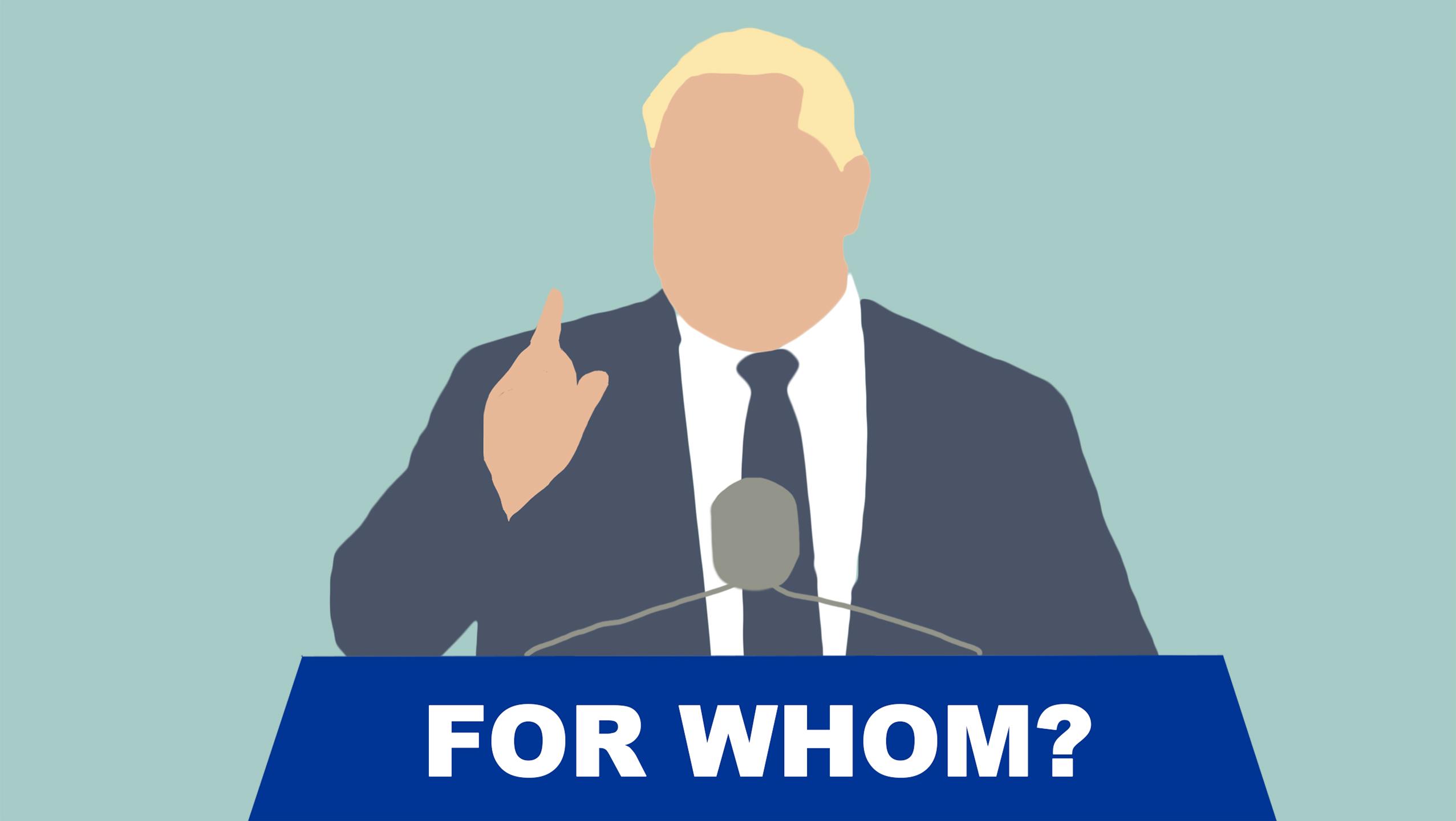By Sherina Harris
Ryerson University says its current free speech statement meets the provincial government’s guidelines and it won’t be rushing to update it for the purpose of adhering to any deadline.
Ontario Premier Doug Ford set a target date of Jan. 1, 2019 for colleges and universities to comply with his government’s free speech policy.
Post-secondary institutions that did not meet the Jan. 1 deadline could see their operational funding grants cut, according to the government’s August press release.
Ryerson’s current statement was adopted by the senate in 2010. At the time, it was one of the first universities to have a public statement, according to Ryerson president Mohamed Lachemi.
The university began drafting a new statement around a year and a half ago, according to Lachemi. It was put on hold after a November senate meeting.
The meeting was interrupted by protests from members of Ryerson’s Black Liberation Collective (BLC) and Indigenous Students Rising (ISR). The Eyeopener reported that BLC and ISR members said the draft statement didn’t include protections for marginalized students.
The draft statement said Ryerson supports the expression of perspectives and ideas, including “controversial, extreme or even wrong-headed” ones.
“The university may reasonably regulate the time, place and manner of expression to ensure that it does not disrupt the normal activities of the university,” the statement reads.
Socialist Fightback at Ryerson also has said the statement is open to interpretation and could be interpreted as “anti-protest law,” The Eye previously reported.
The university will be holding consultations before providing a revised draft statement to the senate. Ryerson provost Michael Benarroch, will be holding consultations with faculty, and Ryerson’s vice-provost, students, Jen McMillen, will hold consultations with students.
“The consultation will continue with our community to see what are the best ways to revise the statement, not because we want to please the government, but I think it’s important for us,” Lachemi said.
Lachemi said Ryerson’s senate-approved statement will be valid until a new one passes.
“We did not want the revised statement to happen exactly by the deadline of the government because we do have one in place.”
Lachemi said “a lot of things [have] happened” since Ryerson first created its statement. This was one of the reasons the university chose to update it in 2017.
In response to Ford’s mandate, Ontario’s colleges adopted a joint free speech policy, according to a press release from Colleges Ontario.
The University of Toronto also has kept their 1992 free speech policy. The university wrote on their website that their policy framework—including freedom of speech, freedom of research, academic freedom and “related matters”—is compliant with the government’s requirements.
The Higher Education Quality Council of Ontario (HEQCO) will assess each institution’s free speech policy this month and advise the ministry of training, colleges and universities on whether the policy meets the minimum standard, according to Rebecca Bozzato, a communications advisor from the ministry of training, colleges and universities.
Starting in September 2019, post-secondary institutions are also required to submit an annual progress report to HEQCO.
“I think the essence of the university is to [have] free speech and academic speech,” Lachemi said.
“That’s something that existed before this government, and that will continue to exist even after this government.”










Leave a Reply